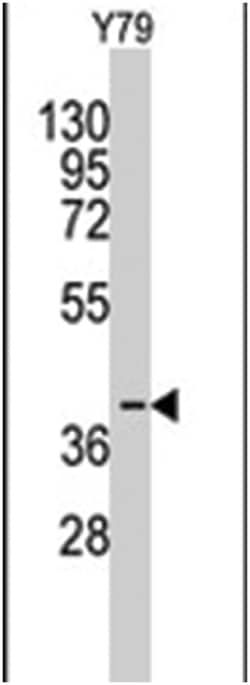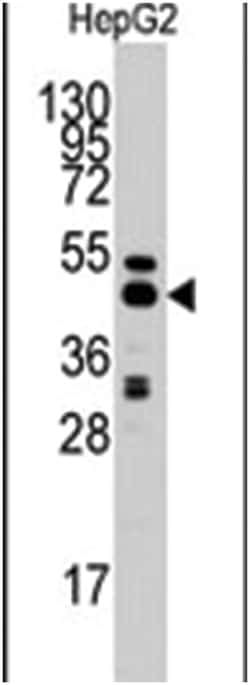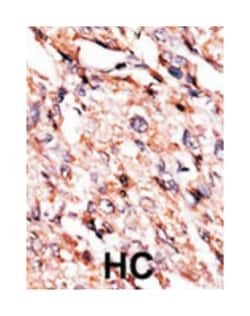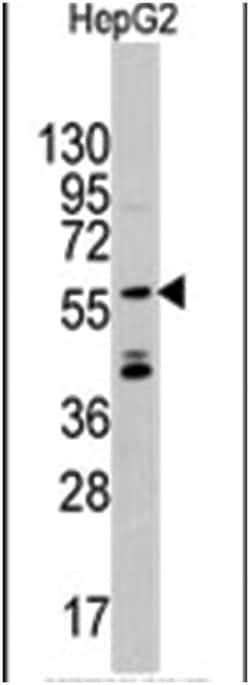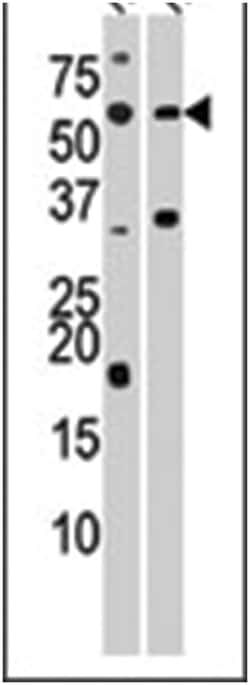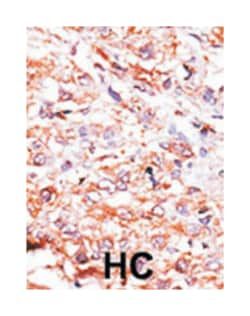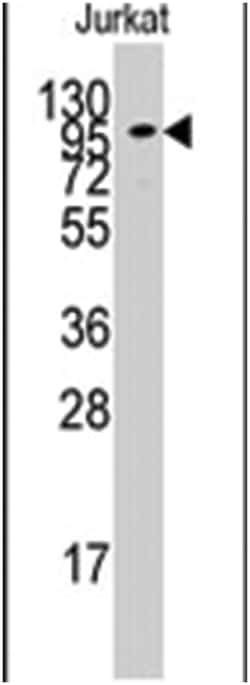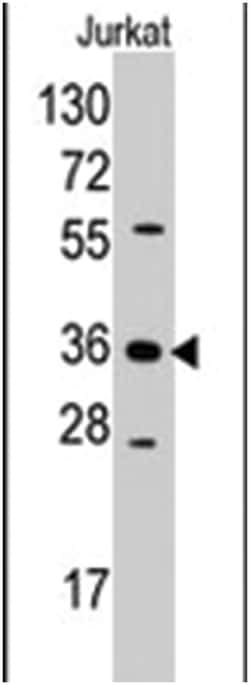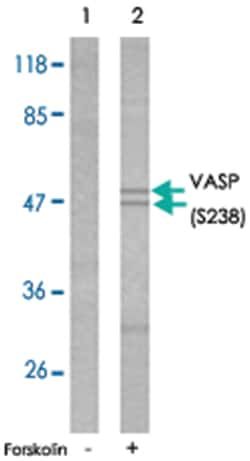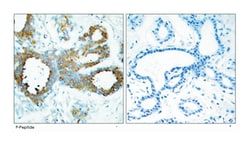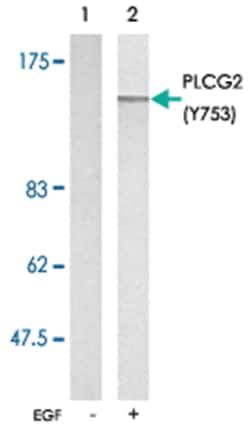AKR1B1 Rabbit anti-Human, Polyclonal Antibody, Abnova™
Manufacturer: Abnova Corporation
Select a Size
| Pack Size | SKU | Availability | Price |
|---|---|---|---|
| Each of 1 | 89-127-448-Each-of-1 | In Stock | ₹ 53,133.00 |
89-127-448 - Each of 1
In Stock
Quantity
1
Base Price: ₹ 53,133.00
GST (18%): ₹ 9,563.94
Total Price: ₹ 62,696.94
Antigen
AKR1B1
Classification
Polyclonal
Description
Rabbit polyclonal antibody raised against synthetic peptide of AKR1B1.
Formulation
In PBS (0.09% sodium azide)
Gene Accession No.
NP_001619;P15121
Gene Symbols
AKR1B1
Immunogen
A synthetic peptide (conjugated with KLH) corresponding to internal region of human AKR1B1.
Quantity
400 μL
Primary or Secondary
Primary
Target Species
Human
Form
Liquid
Applications
ELISA, Immunohistochemistry (Paraffin), Western Blot
Conjugate
Unconjugated
Dilution
Western Blot (1:1000) Immunohistochemistry (1:10-50) The optimal working dilution should be determined by the end user.
Gene
AKR1B1
Gene Alias
ADR/ALDR1/ALR2/AR/MGC1804
Host Species
Rabbit
Purification Method
Ammonium sulfate precipitation
Regulatory Status
RUO
Gene ID (Entrez)
231
Content And Storage
Store at 4°C. For long term storage store at -20°C.Aliquot to avoid repeated freezing and thawing.
Description
- Description This gene encodes a member of the aldo/keto reductase superfamily, which consists of more than 40 known enzymes and proteins
- This member catalyzes the reduction of a number of aldehydes, including the aldehyde form of glucose, and is thereby implicated in the development of diabetic complications by catalyzing the reduction of glucose to sorbitol
- Multiple pseudogenes have been identified for this gene
- The nomenclature system used by the HUGO Gene Nomenclature Committee to define human aldo-keto reductase family members is known to differ from that used by the Mouse Genome Informatics database
- [provided by RefSeq
